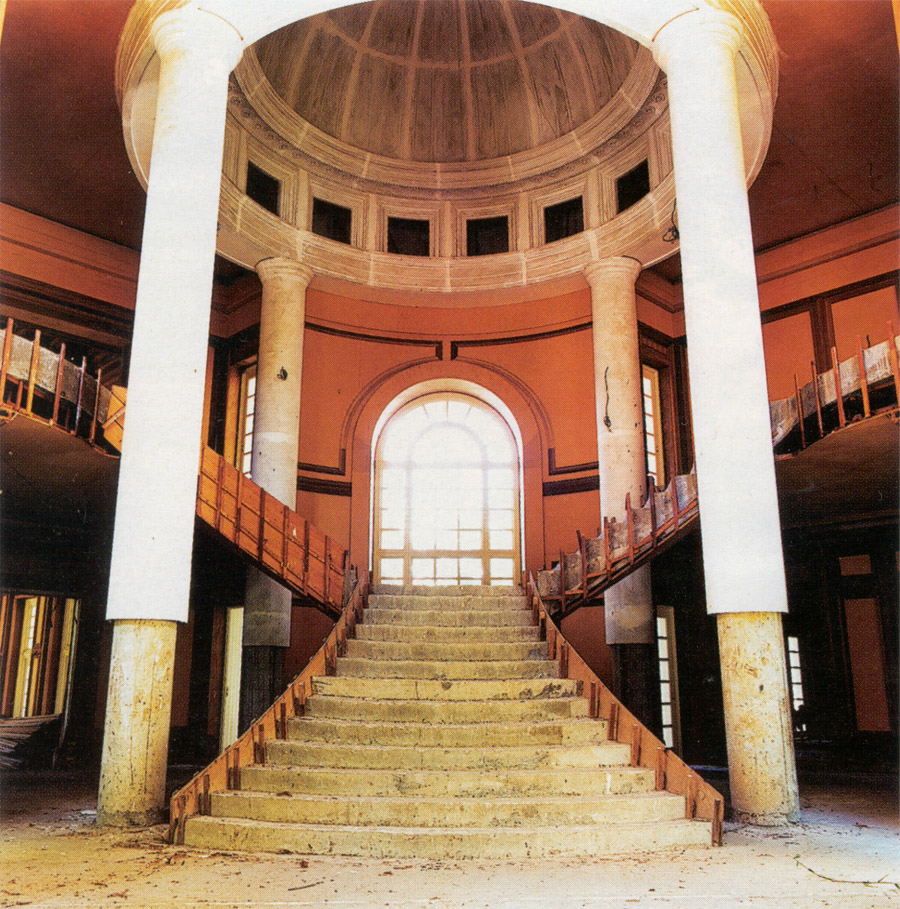

Jia Zhangke
Unknown Pleasures (2003)

Jia Zhangke

This review is only for people whoíve seen the film. If you havenít seen the film, stop reading and please see it now. Unknown Pleasures is a remarkable film by talented filmmaker Jia Zhangke.
The film contains several open tributes to Wong Kar-Wai as well as references to Godard and Pulp fiction although the actual style has more in common with Antonioni than it does Tarantino or Wong Kar-Wai. The long blue shot of the open lot where bowl hair and lead female meet at the bus stop was very similar in composition to the scene in LíAvventura when the two men are about to fight over a tiny bottle of ink. In that scene, thereís a long shot over an open courtyard. Here itís the proverbial second world construction pit. In LíAvventura there is the telling detail of the little horse and cart in the background showing working people going about their business. Here, itís a small group of people carrying their ladder behind a partition in the far background. [open lot]
Jia also posseses Antonioni's gift of visual framing and reframing as a scene develops in order to create new feelings/impressions for the viewer. Take the scene where he gives his girlfriend the cell phone. Notice how Jia starts by isolating the two of them against the Simryn Gil-esque Ďwhat once wasí plaster wall, which was entirely sparse and abstract like a dual tone Rothko. There are just the right visual elements to create a feeling of cement desolation, which is, of course, the damn theme of the film. So itís a cafť, right? Then he pans back to let the left side of the room look like a tunnel which goes somewhere, like a subway station or something. Then he pans back again and at the same time, you find out both visually and by the screenplay, itís in fact, a little old run down bus station/billiard hall. [station]
Another of the filmís strengths is the major mega realism from hepatitis, to hospitals, to hookers, coca-cola, bombs, motorcycle exhaust and puny pensions. And this realism will not stand down, but neither does it draw too much attention to itself. One could argue that Jia is a little heavy handed in his attempt to include cultural gravitas, particularly the announcement of the olympics to be held in Beijing. Excuse me, but Tarkovsky does the exact same thing in Mirror with the Spanish Civil War, the Chinese-Russian border dispute and the balloon ride to the stratosphere. The fact that you donít complain about it in Mirror may simply reflect a more skillful integration of said exogenous gravitas into the body of the main narrative. Of course, this would be nitpicking. And anyone who can even be discussed in the same review as Tarkosvky should be flagged in your inbox.
Also, quite unlike Francois Ozun in Swimming Pool, Jia shows how blatant repetition is not necessarily a bad thing if it contributes to the filmís thematic content. ďAre you having fun?Ē [slap] ďAre you having fun?Ē [slap] And so forth. Iím having fun. The repeated pushing her down by her boyfriend also tests us but ultimately is meaningful and rewarding.
The girlís agent was like an evil older version of Leslie Cheungís playboy from Days of Being Wild. The use of drop history and film within film are techniques also familiar to Wong Kar-Waiís earlier and some not so earlier films. The part where Bowl Hair stubbornly refuses to walk his motorcycle up ten feet of rubble, instead determined to motor it, is a bit much. But thatís okay. This is Jia Fucking Zhangke. Who am I? Who am I? Who am I? Who am I? The part where the two talk over the table as the camera jerk swivels side to side to the conversation must be a nod to the familiar Godard technique seen in Alphaville and Contempt. But could somebody please tell Elvis Mitchell the difference between clever tribute and an actual appropriation of style.
The final scene is a knowing or unknowing reference to the prologue in Tarkovskyís Mirror. We have a young boy under the complete control of an older authority figure. Here, it is the cop. In Mirror, itís the lady who is going to cure the boy of his stutter. "Boysha. Boysha. Periodt!" Then there is the exquisite tension while we wait to see what happens, if he sings or what will happen if he does not.
Jia Zhangke is poised and ready to become (one of) the most important film director(s) of this decade. Nevermind the comparisons. No sixth generation. No nouvelle vague North China. Just Jia. I would give anything to know what Tadao Ando thinks of this film.Howard Schumann says:Shot in digital video that enhances its authenticity, Jia avoids pathos and sentimentality for a documentary-style realism that is deeply affecting. Although he focuses on the boys as victims of social and economic dislocation in China, the theme is more about feelings of abandonment, loneliness, and emotional numbness. Jia, one of the best of Chinaís new generation underground "indie" directors, has captured this sense of ennui more palpably than any movie Iíve seen in a long, long time. When Xiao finally abandons his sputtering motor bike in the mile of a new superhighway, Jia seems to be suggesting that both he and China itself are at a precarious crossroads in their existence and must discard what isnít working if they are to move on.